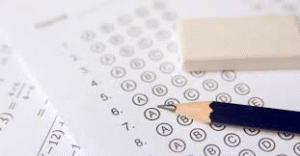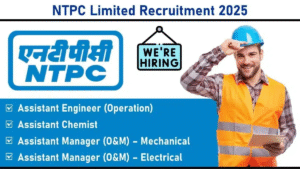The Power of Mock Tests: More Than Just Scoring
Introduction: Beyond the Scorecard
For countless aspirants navigating the challenging landscape of competitive examinations, particularly in the highly competitive Indian government job sector, mock tests often stand as a formidable, sometimes terrifying, gatekeeper. The prevailing mindset tends to view these simulations solely as a measure of one’s current standing, a numerical indicator of readiness. However, to confine mock tests to a mere scoring exercise is to profoundly underestimate their true potential. Their real power lies not in the immediate number displayed on the screen, but in the analytical depth they offer, providing an unparalleled opportunity to dissect performance, pinpoint vulnerabilities, and transmute apparent failures into potent learning opportunities.

Deconstructing the Performance: The Post-Test Analysis
The initial impulse upon completing a mock test is often to immediately check the score. While this provides a snapshot, it’s a superficial glance that misses the rich tapestry of insights woven within the details. The true analysis begins after the score is revealed. A deep dive necessitates a methodical review of every single question, irrespective of whether it was answered correctly or incorrectly. For correct answers, the question is: was it a lucky guess, or was the logic flawlessly applied? Understanding the latter reinforces correct reasoning, while identifying the former highlights areas where conceptual clarity might still be shaky.
The Goldmine of Errors: Unpacking Mistakes and Unattempted Questions
The real goldmine, however, lies in the incorrect answers and, surprisingly, even the unattempted questions. An incorrect answer isn’t merely a point lost; it’s a diagnostic tool. Was the error due to a conceptual misunderstanding? A lapse in recall? A misinterpretation of the question? Or perhaps, a silly calculation mistake under pressure? Each type of error demands a distinct remedial action. A conceptual gap requires revisiting the fundamental theory, perhaps consulting different resources or seeking clarification. A recall issue might point to insufficient revision or ineffective memorization techniques. Misinterpretation emphasizes the need for careful reading and identifying keywords. Calculation errors underscore the importance of meticulousness and potentially, practicing numerical accuracy.
Furthermore, the unattempted questions are as telling as the incorrect ones. They illuminate gaps in knowledge, issues with time management, or a lack of confidence in certain topics. If a question was skipped due to time constraints, it prompts a re-evaluation of pacing strategies for future tests. If it was skipped due to unfamiliarity, it clearly flags a neglected area of the syllabus that demands immediate attention. This systematic categorization of errors allows an aspirant to move beyond a vague sense of “not knowing enough” to a precise understanding of “what specific concepts I need to master.”
From Failure to Fuel: Actionable Learning Strategies
Turning these “failures” into learning opportunities requires discipline and a proactive approach. It’s not enough to identify the weak areas; one must actively work on them. This involves targeted study sessions focusing solely on the identified weak topics. It might mean re-solving similar problems, making dedicated error notes, or even creating flashcards for tricky concepts. The process should be iterative: analyze, learn, re-test. Each mock test, therefore, becomes a crucial feedback loop, refining the preparation strategy and making it increasingly efficient.
Conclusion: Mock Tests as Learning Accelerators
In essence, mock tests are not just simulations of the final exam; they are dynamic learning instruments. They provide a safe space to experiment with different strategies, manage time under pressure, and encounter unforeseen challenges. By shifting the focus from merely achieving a high score to meticulously dissecting performance, identifying the root causes of errors, and systematically addressing those weaknesses, aspirants can transform mock tests from simple assessment tools into powerful accelerators of their learning journey. The true power of mock tests lies in their ability to illuminate the path forward, transforming perceived failures into invaluable lessons that pave the way for ultimate success.




















